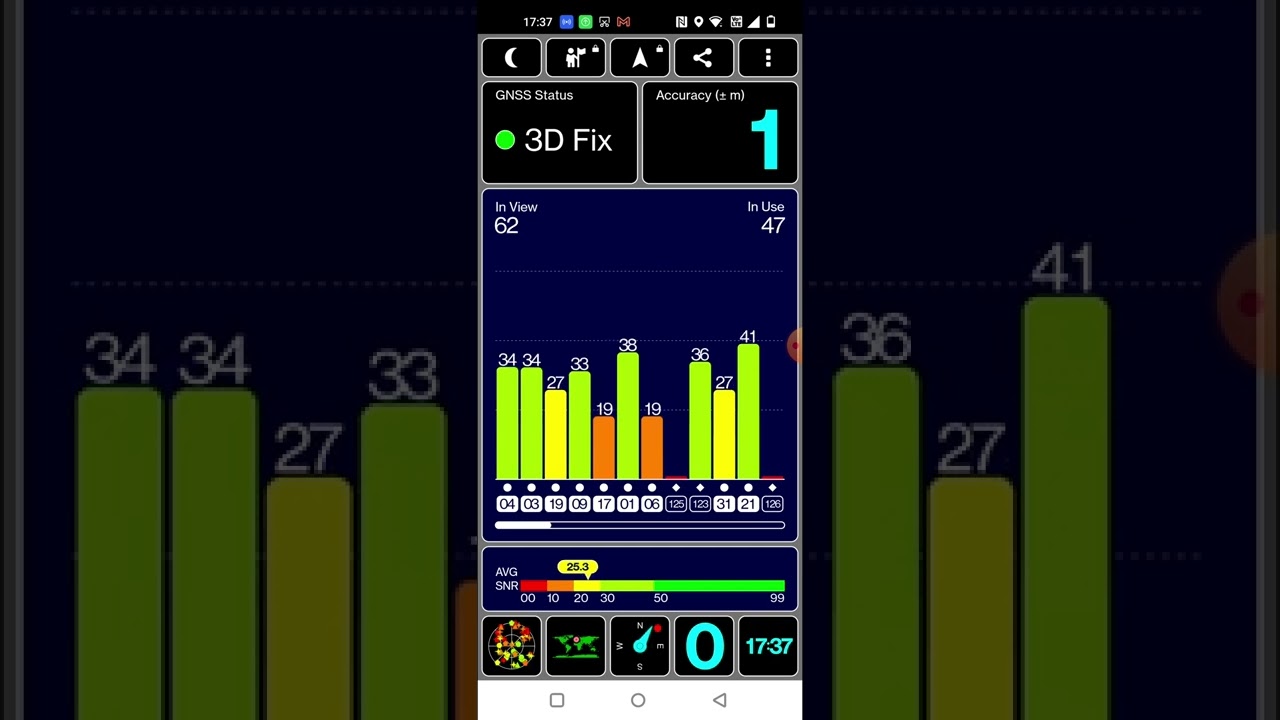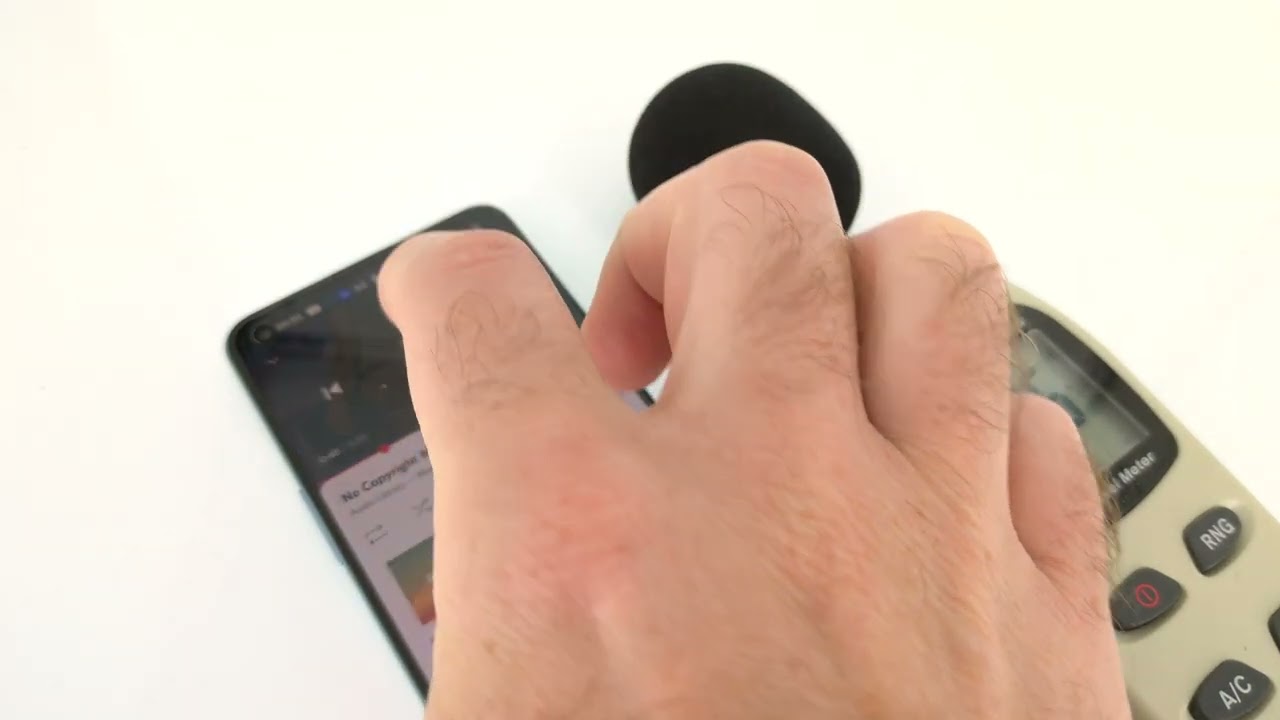Smartphones
OnePlus Nord 2T test / review
Published on: 12-07-2022 / Modified: 11-12-2022
OnePlus is a brand that I neglected a bit because this brand mainly sold high-end phones that were quite expensive and since I don't have an unlimited budget, I have to make choices. When the OnePlus Nord range arrived on the market, I was tempted by the OnePlus Nord N100 but I was frankly disappointed. So I continued to neglect this brand until the arrival of the OnePlus Nord 2T because it combines several elements that interest me in a smartphone, so I decided to break the bank to try it!
Manufacturer web site:
https://www.oneplus.com/
Site where I have bought the OnePlus Nord 2T:
https://eshop.orange...
Structure of my tests
I test the phones according to a pre-established structure (see below) to provide you with as much information as possible. Unfortunately, this takes a long time. Some tests like network performance tests take several days and for photo tests I sometimes have to wait until the weather is suitable to take pictures in good conditions. I am therefore obliged to publish the tests step by step, so I invite you to come back if the test is not complete at the time of your visit.Price OnePlus Nord 2T
The list below shows the prices for the OnePlus Nord 2T from more than 50 sites around the world. If you are not satisfied with any price, you can subscribe to a price alert to be the first to be notified when the price drops.The above links are affiliate links from companies such as Amazon, Gearbest, Aliexpress,... If you appreciate my work, I would be grateful if you could purchase these products through these links. It costs you absolutely nothing but I get a small commission that allows me to buy the material I test. Thank you very much!
Timeline
07/11/2022: purchase of the OnePlus Nord 2T for €39907/15/2022: receipt of the phone, the test can begin
Why this phone?
As I said in the introduction, I haven't tested many phones of this brand because of their prices, so I needed a good reason to change my mind and the first thing that made me change my mind it is the presence of the Sony IMX 766 sensor as the main sensor. I haven't had the opportunity to test this sensor yet and in theory it should deliver good photos. So that was the starting point.There are also other interesting elements in this phone such as performance, screen quality, level of finish, fast memory (UFS 3.1), gps dual band, ... So it takes up the elements that make the success of other brands like Xiaomi with a more premium and original format than what I'm used to seeing. If you've never had a OnePlus before, my experience should help you as this is my first OnePlus in this price range.
Unpacking
First configuration
The configuration of the OnePlus Nord 2T broadly follows the standard Android configuration. OnePlus hasn't added an extra layer to sign up for a cloud or that kind of service. However, you can make a few choices to configure your phone at the end of the configuration procedure. The phone, on the other hand, has some pre-installed applications, but not as many as Samsung or Xiaomi.Finish
The OnePlus Nord 2T is a mid-range phone but with a high-end design, it also manages to distinguish itself from other phones thanks to its color and the integration of its sensor Photo.
Specifications
The information below comes from the Device Info HW application. The application provides detailed technical information about the tested phone. I tested the OnePlus Nord 2T 8Gb / 128 Gb version with the Jade Fog finish, you will find all the features of this phone in the screenshots below.
I noted some interesting points:
- Dimensity architecture so probably good GPS performance
- dual frequency gps
- UFS 3.1 memory for quick access
- MT6893 wifi chip (tested on other phones)
- 60/90Hz dual frequency display
- huge list of available codecs
CPU / GPU Performance
The OnePlus Nord 2T is equipped with a Mediatek Dimensity 1300 CPU, it is a CPU that offers good performance and will probably not be challenged by any application or game. The load test will show if it does not. does not emit too much heat and if it does not consume too much energy.
For the graphics part, this phone relies on an Arm Mali-G77 MC9 GPU, it is the same as on the Xiaomi 11T and here too this GPU should not be put in difficulty if you use heavy applications or 3D games.
Benchmark Antutu/3DMark
I obtained a score of 501513 points with Antutu V8, it is a good score which places this phone at the same level of performance as a Poco F4 although with my load test, I note that the OnePlus is more efficient on the CPU. With this type of score you can play any game without having to make big sacrifices. However, I note a significant increase in the temperature of the phone when pushed to the limit, but I will come back to this point in my load test.Gaming
To test the performance in game, I download the mobile PUBG game and evaluate the in-game experience, graphics level and depth of vision. This game is quite demanding and should help you evaluating the performance of a phone.

Network performance
The OnePlus Nord 2T covers most frequencies used in Europe but is a little less generous than Xiaomi. This phone covers 10 frequencies in 5G, 22 in 4G and 6 in 3G. So remember to check the frequencies for your country or those of the country where you are going on vacation.Signal 4G (from December 2020)
I decided to change the methodology for measuring the network because I noticed that the configuration of the mobile network changes over time. This makes it more difficult to compare phones because the conditions are no longer exactly the same.
To overcome this problem, I set up a device that captures 24 hours a day about ten parameters from the mobile network (ex: cell id, rssi, rsrq, snr, frequency,...). I then place the phone next to the device for 24 to 48 hours taking the same measurements so that I can compare them.
Overview of the phones tested with this methodology
I made 1340 measurements in 4G (I don't have 5G at home) to assess the network sensitivity of this OnePlus and I obtained an average signal of -96.305 dBm where I obtained an average signal of -98.83 dBm with my reference device. The OnePlus therefore has a good sensitivity to the network because this phone managed to do better than the results of my probe, it is quite rare.
Download/Upload speed
To test the download speed, I have identified some 4G cells offering good performance where I test all my devices several times to see what download and upload speed they can achieve.
Wifi performance
To test a phone's ability to receive the network properly, I take measurements near my router and then remotely (and always at the same place). This gives me an average in dBm where a value of -90 dBm indicates poorer performance than a value at -30 dBm.Wifi signal
I got an average signal of -16 dB near the router and an average signal of -56 dB at a distance. These are very good values that place the OnePlus Nord 2T at the top of the ranking in terms of wifi sensitivity.
Download/Upload speed
To test the speed in Wifi, I connect to my router in 2.4Ghz and 5Ghz (if available) and use the Ookla application to measure the speed.
GPS performance
To test the accuracy of the GPS signal, I use two positioning applications to evaluate the difference between the actual position and the position indicated by the phone. This test is done outdoors with nothing to obstruct the signal. An accuracy level of up to 3 meters can easily be corrected by an application (e.g. Google Maps).

Battery range
To test battery life I developed an application that measures the battery level minute by minute until the battery is empty. This application consumes about ten percent of the phone's resources and I do a test with 100 brightness. This test aims to reproduce a contemplative use of a phone (e.g. surfing the internet, reading articles, spending time on social networks). These results are not valid for intensive gaming/streaming use. I tested the charging speed with my UGREEN 100W charger in QC3 and I think this phone is not compatible with QC3 because the charging time was too long. The charging time will therefore be better with the charger delivered in the box. On the other hand, if I observe the load curve, I notice that the load is absolutely not linear. Charging is quite fast between 0-40% (25min), slows down a bit between 40-60% (20min) and flattens out between 70-100% (80min). I have never seen such behavior for battery charging before. Battery charge often decreases after 80% but not in increments like this.Load test
To test the energy efficiency of a phone I push all its components to the limit for several minutes, first sequentially and then pushing all the way in at the same time. I observe the real computing power, the ability to keep the phone at a good temperature, the battery consumption. This kind of test also allows you to see if the phone is able to exploit all its power when everything is running at the same time because even if the CPU and the GPU are powerful, when they work together they may not give 100% of their performance.The OnePlus Nord 2T has a fairly economical CPU, it offers almost equivalent performance to the Poco X4 GT but with half the energy. The CPU consumes an average of 3.48W when pushed all the way. I notice the same thing with the GPU which consumes an average of 1.9W when pushed to the maximum. It's one of the most economical GPUs I've tested so far. The efficiency doesn't stop there because by pushing the CPU and the GPU to the limit at the same time, I only have a very small loss of performance. This means that in the face of more powerful but less efficient phones (eg Poco F4 GT), this OnePlus Nord 2T can offer almost equivalent performance.
I haven't tested enough phones with this type of test, but for now this OnePlus Nord 2T ranks in the top three for energy efficiency. It should be able to give you 2-3 days of battery life with normal use.
I measured an average battery temperature of 36.98°C during the test and a maximum temperature of 45°C. The phone therefore heats up a little but not to the point of having to let go of the phone, it is in the average of phones in this range. The phone lost 8% battery over the duration of the test, this is more than the phones I have tested in recent weeks but this is explained by the fact that the battery is of lower capacity.
Photo camera test
To test the quality of photos produced by a phone, I do a technical test (resolution, sharpness, chromatic aberration,...) in studio (identical conditions) to evaluate the technical part objectively. From the second half of 2020, I built my own laboratory to take completely objective technical measurements. I then take pictures in real conditions to see how the camera performs. I then evaluate these photos according to my criteria but I publish the photos so that you can evaluate the result according to your criteria.Hardware
The OnePlus Nord 2T is equipped with the following photo sensors:- Sony IMX 766 / 50 million pixels
- ultra wide angle sensor / 8 million pixels (unidentified manufacturer)
- 2 megapixel depth sensor
- Sony IMX 615 / 32 megapixel selfie sensor
Photo quality
Photo quality (indoor/studio)
The studio test is carried out under the same conditions so that the results can be compared on an equal basis. I calibrate my lighting for each test to obtain the same brightness and colour temperature. This test is a preliminary analysis of the technical qualities of a camera. Most phones fail this test, so you should also read the results of the other tests in the following paragraphs.
Main sensor: Sony IMX 766 / 50 million pixels
Secondary sensor: unknown / 8 million pixels
Photo: technical test
I was inspired by industrial technical tests to create my own technical test to evaluate the technical quality of a camera. This test is an objective assessment of a camera's ability to render a scene correctly.
I test the following elements:
- centre sharpness, peripheral sharpness
- colour fidelity based on 24 reference colours
- level of chromatic aberration
- dynamic range (ability to capture dark and light areas without loss)
- distortion
The technical evaluation may differ from the subjective evaluation as the feeling of a photo will be influenced by the processing provided by each manufacturer.
Main sensor: Sony IMX 766 / 50 million pixels
Secondary sensor: unknown / 8 million pixels
Outdoor photo quality
Main sensor: Sony IMX 766
Without HDR
I was expecting a bigger difference with Sony's previous generation sensors, that's not to say this one is bad (quite the contrary) but I was expecting better.
Secondary sensor
Test photo / night
Main sensor: Sony IMX766
Video quality
Stabilisation

Video normale conditions

Video low light

External audio quality
This test is intended to give you an overview of the volume and sound quality during calls and when listening to music through the external speakers.

Music audio quality
The OnePlus Nord 2T is equipped with two external speakers, one at the listening level and another on the lower side of the phone. I thought these 2 speakers were going to deliver different quality sound but I didn't notice any difference when listening from a distance. The volumes emitted by the two speakers are quite similar.
The sound produced by the OnePlus is of good quality, the high frequencies are quite well rendered and even if the low frequencies lack a bit of depth, the sound is generally good. The volume is a little above average.
Audio / call quality
The call volume is above average, the sound quality is very good, there is no It's not too high nor too low. With the loudspeaker it's the same, the volume is above average and the sound quality is good.
Audio quality (headphones)
To test the quality of the phone's audio output, I connect the device's audio output to a measuring tool, then play sounds on all frequencies and measure the differences between the original sound and the sound produced by the phone. In this way I measure the phone's ability to correctly reproduce all sounds.Screen quality
To test the screen, I use a colorimetric probe that measures the color accuracy of a screen, as well as other parameters to see if a screen is able to correctly reproduce an image. I also test the brightness level to determine if the screen will be able to display an image in full sunlight.Colorimetry
With these settings I get a dE of 1.55 with a white of 6719k. The colorimetry is much better with these settings, I don't understand how a premium brand can make this kind of choice. I can understand that a highly saturated image is more pleasant to look at, but if the colors deviate too strongly, this saturation gives an unbelievable image.
Brightness / Contrast
I measured a brightness of 470 cd/m² in normal mode and with the brightness at maximum. I measured a brightness of 594 cd/m² with light mode and flooding the sensor with light. These are correct values without being exceptional. In auto-light mode, the screen should be readable outdoors in most conditions.
Contrast
I measured a contrast ratio of 32348:1 and although this score is good it is significantly lower than what I usually measure on AMOLED screens. The default colorimetry was not correct but I did not manage to recover the gray scale either, I obtain a dE of 4.71 on the grays and a gamma of 1.79. That's not very good for a phone in this price range.
Biometry
The phone is equipped with an in-screen fingerprint sensor and those who read me regularly know that I don't really like this type of fingerprint sensor, but I must admit that the OnePlus one works quite well. Recognition is less immediate than a sensor on the side of the phone, but it's a very good on-screen sensor.Operating system
I had only tested one OnePlus before this one, so I didn't spend as much time testing OxygenOS as MIUI or SamsungUI but with this second test I can form a more detailed opinion. The first thing I notice is the care given to the aesthetics of the operating system and it starts with the choice of font. From the configuration OxygenOS offers the possibility of taking another font and the one offered by OnePlus is really pretty, it offers a more pleasant experience than with Roboto the default font.
OnePlus hasn't filled its phone with unwanted apps either (bloatware), there are a few but significantly fewer than Xiaomi or Samsung.
OxygenOS follows the main principles of Android screens but offers other customization possibilities. For example, there is a screen of custom tiles when you swipe from the top to the bottom right. There is also a customization menu in the settings which allows you to configure the phone in a rather interesting way, I am thinking in particular of the choice of light to signal the arrival of a new detail. This may seem anecdotal but it has its small effect.
I find that OxygenOS can be compared with Xiaomi's SamsungUI or MIUI with a less invasive approach. OnePlus does not display ads and has added a lot of unwanted apps. I also didn't feel like I was being hassled into creating a OnePlus account.
Encoutered bugs
I haven't encountered any bugs or crashes with this phone but there are two things that sometimes annoy me a little. First there is the presence of the volume buttons on the left of the phone, but I guess it's a matter of habit. The second point is related to the first but is in my opinion much more boring. To turn off the phone, you must use the power button on the right in combination with the volume key which is on the other side of the phone and which is not easy to operate for a right-handed person. The power button triggers Google Assistant rather than turning off the phone.I should also mention that the screen protector seems more susceptible to scratches than what I'm used to testing. I'm always very careful in testing my phones so that they are in perfect condition when I resell them. I sometimes manage to keep a phone for months without having the slightest trace on the screen. It didn't take me more than two days before I saw scratches appear on the screen protector and I don't even know how it could have happened. This obviously does not affect the quality of the screen, but the type of plastic used is clearly more fragile than on other phones.
Update: I have also encountered a systematic problem when I try to transfer photo files one by one via USB, the transfer goes into an endless loop. If I transfer a whole directory, it works.
Accessories OnePlus Nord 2T
Compare OnePlus Nord 2T with the others
Test / Review conclusion
The first conclusion of this test is that I should test phones from this brand more often or at least test mid-range phones from OnePlus. The first OnePlus that I tested did not make me want to test others, fortunately my curiosity still pushed me to test another one and I'm quite happy to have done so.
I test a lot of mid-range phones and all the phones end up looking the same, OnePlus already scores a point by distinguishing itself quite clearly from what we find at Xiaomi/Poco or even at Samsung in this price range. It's a very nice phone and thankfully the positives don't end there.
The OnePlus Nord 2T isn't the most capable phone in this price range, but it still does very well for running just about any game in good conditions. Performance does not interest everyone except when it offers additional comfort on a daily basis and here it is the fast memory of the OnePlus which will offer you fluidity in all daily gestures. The performance does not stop at the power of the phone but it requires good network sensitivity, good wifi sensitivity (and good download performance) and good GPS accuracy. This phone is therefore quite complete in terms of performance, it responds on all fronts.
What about the photo? This is where I expected the most this phone, I wanted to test this Sony sensor. The photo quality is good but not at the level I expected because the difference compared to the previous generation is not spectacular but in this price range the OnePlus takes good photos.
The battery of the OnePlus is of lower capacity than what I usually test this year but its energy performance is good and this results in an autonomy equivalent to a less efficient phone which has a 5000 mAh battery. When pushed all the way in, this phone heats up a bit but not so much that you can't hold it anymore.
The screen is also of good quality but the factory setting is really not good, it's even worse than Xiaomi with their "saturated colors" mode. It is therefore necessary to adapt the settings a little to obtain an almost perfect colorimetry.
I didn't find any major weaknesses with this phone, it looks like a premium phone but that's not just about the looks, it can easily compete with a premium phone. a higher range.
Strengths
Performance
Wifi sensitivity
4g sensitivity
GPS accuracy
Photo/video quality
Energy efficiency
Sound quality
Finish level
Screen quality
Weaknesses
Bad default screen calibration
Position of the volume buttons
It takes 2 buttons to turn off
Screen protection
Small differences in audio frequencies with headphones
Alternatives to this product
Not yet available / tested
 LAURENT WILLEN
LAURENT WILLENHead of myself on this blog
I share my passions on my blog in my free time since 2006, I prefer that to watching nonsense on TV or on social networks. I work alone, I am undoubtedly one of the last survivors of the world of blogs and personal sites.
My speciality? Digital in all its forms. I have spent the last 25 years working for multinationals where I managed digital teams and generated revenues of over €500 million per year. I have expertise in telecoms, media, aviation, travel and tourism.











































Questions/Comments